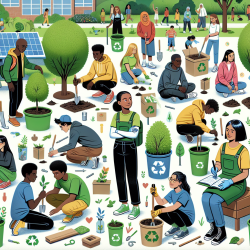Are you curious about the journey to becoming a school counsellor in British Columbia? Whether you're an aspiring counsellor or simply interested in the educational landscape, this blog post will provide you with key insights and essential knowledge.
Certification and Regulation
In British Columbia, school counsellors are permitted to practice in schools through their certification as teachers by the Government of BC's Ministry of Education. The Teacher Regulation Branch (TRB), part of the Ministry of Education, ensures that educators in the K-12 school system meet and maintain high standards of competence and conduct. This helps keep students safe and fosters public trust and confidence in the teaching profession.
Previously, the British Columbia College of Teachers (BCCT) was responsible for setting and enforcing standards for teachers in the province. However, in 2011, the BCCT was replaced by the Teacher Regulation Branch of the Ministry of Education, following a government-commissioned report. This change took effect on January 9, 2012.
Current Landscape
Currently, counselling in BC is an unregulated profession. Despite efforts by the British Columbia Association of Clinical Counsellors (BCACC) to include counselling in the Health Professions Act, no legislated qualifications for counsellors or school counsellors specifically exist. School counsellors are not regulated beyond licensure by the Ministry of Education.
Nevertheless, the British Columbia Teachers Federation (BCTF) supports a Provincial Specialist Association (PSA) of teacher-counsellors, known as the British Columbia School Counsellors' Association (BCSCA). Although enforcement of these standards is voluntary, they provide a framework for maintaining quality in school counselling.
Educational Requirements
The BC Ministry of Education's Special Education Services: A Manual of Policies, Procedures, and Guidelines (2013) outlines that school counsellors should possess:
- A professional teaching certificate
- A master's degree recognized by the Ministry in counselling psychology or a related discipline with a focus on counselling
The minimal recommended standards by the BCACC and those outlined in the Special Education Services manual are similar. Both recommend a master's degree in counselling or a related discipline. Specifically, the BCACC requires specialized counselling-based coursework (e.g., diversity, group, family counselling/counselling ethics) and a specified number of direct or videotaped supervised practicum hours.
For more information, please follow this link.










